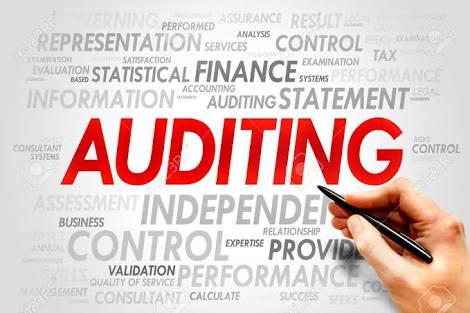The Philippine Financial Reporting Standards (PFRS)/Philippine Accounting Standards (PAS) arethe new set of Generally Accepted Accounting Principles (GAAP) issued by the Accounting StandardsCouncil (ASC) to govern the preparation of financial statements.
The rationale for using the IFRS/Philippine Financial Reporting Standards (PFRS) is to ensure consistency in recording, recognizing and measuring financial transactions, which, if followed properly, will ensure stability and transparency throughout the financial reporting process of the company.
The Philippines has adopted IFRS Standards as Philippine Financial Reporting Standards (PFRSs), except on the aspect of revenue recognition under IFRS 15 for real estate companies that avail of the relief granted by the SEC. IFRS Standards adopted as Philippines Financial Reporting Standards (PFRS) are required.

- Faculty: Bangcaya, JARED VIRGIL
- Faculty: Bangcaya, Sandra Angela
- Faculty: VILLAVER, FRANCIS DAVE
Internal (Operational) auditors are expected to determine the reliability of financial and operational reporting; assess the economy, efficiency and effectiveness of operations; and verify that the organization's assets are being properly used and safeguarded.
In today’s business environment, an ever-demanding board counts on operational auditing to verify that internal controls are operating as intended and to determine if processes are efficient and support organizational objectives. All of these expectations point to the need for internal auditors to perform high-quality operational reviews.

- Faculty: Bangcaya, Sandra Angela
- Faculty: Villaruz, Shereen Mae
- Faculty: VILLAVER, FRANCIS DAVE
- Faculty: Bangcaya, JARED VIRGIL
- Faculty: Bangcaya, Sandra Angela
- Faculty: POLLESCAS , RICA CAMILLE
- Faculty: Bangcaya, Sandra Angela
- Faculty: OMAMBAT, Michael
Financial statements are the representation of the reporting entity’s management. To lend credibility to the entity’s prepared financial statements; they have to be examined by an independent external auditor, who expresses an opinion as to the fairness by which such financial statements are presented. Audit objectives are identified, and internal control is evaluated so that the auditor could formulate and apply audit procedures to each of the major accounts in the financial statements relating to the expenditure cycles, revenue and collection cycles, and conversion cycles.
This first part course covers detailed approaches to problems and situations normally encountered in the independent examination of financial line items such as: cash, receivables, inventories, prepayments, investments, biological assets and agricultural produce and property, plant and equipment (including natural resources, depreciation/depletion, borrowing costs, and impairment), applying the transaction cycle audit.
Learners must be able to identify and perform the appropriate audit procedures, prepare audit adjustments and complete audit working papers with computer application relating to audit of cash balance, expenditure cycles, revenue and collection cycles and conversion cycles of a manufacturing, trading and service concern type of businesses, to serve as bases for the preparation of audit reports.

- Faculty: Bangcaya, Sandra Angela
- Faculty: Villaruz, Shereen Mae